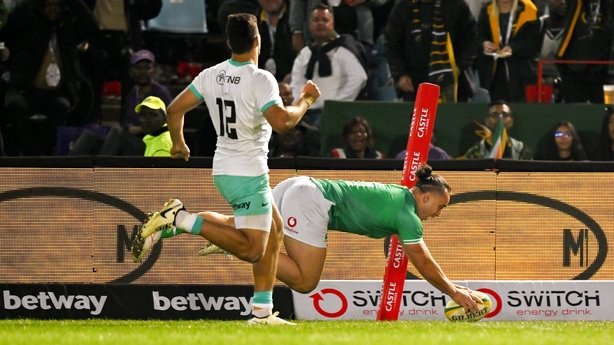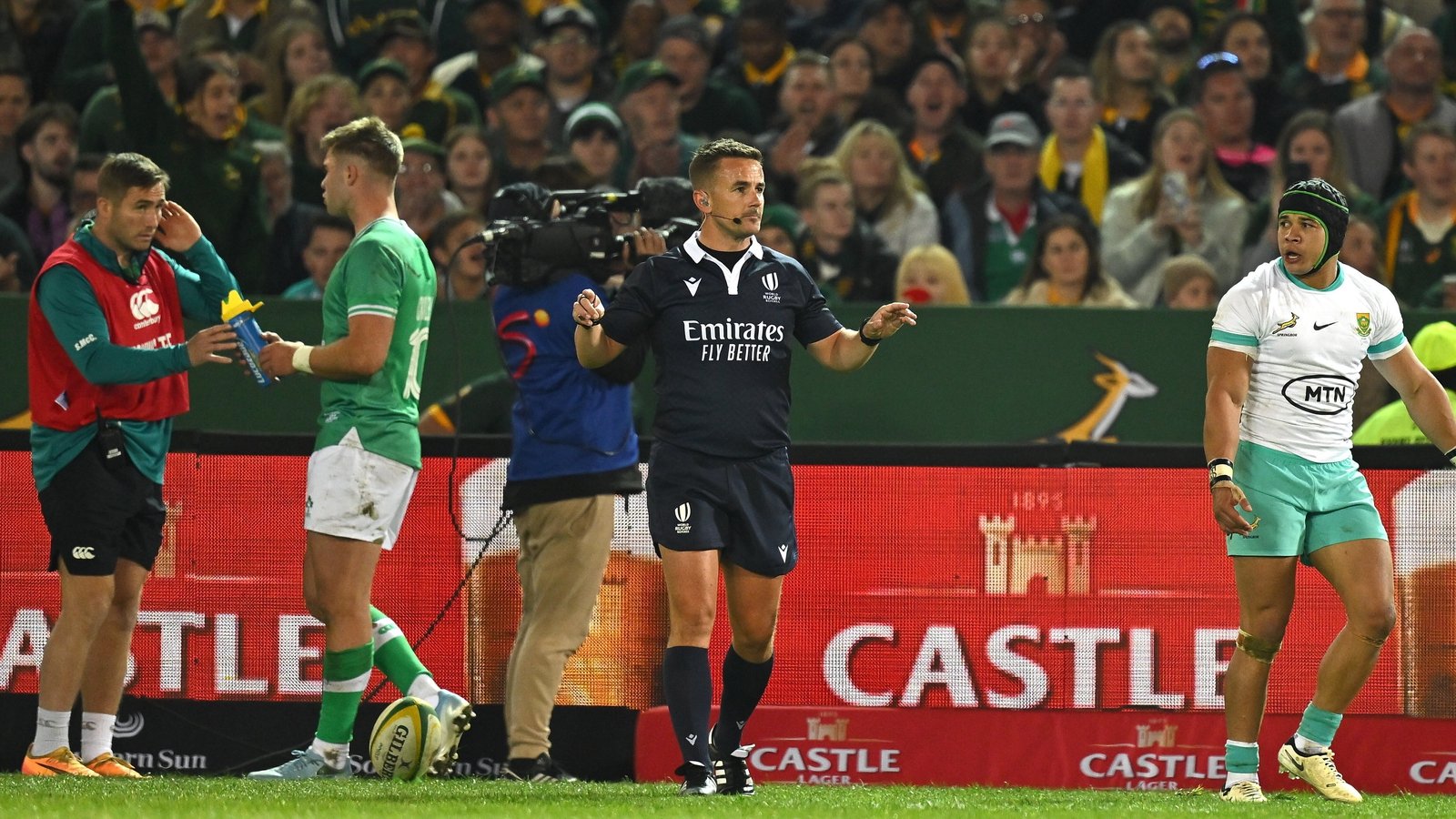Former Test referee Jaco Peyper believes Ireland can have no complaints over their controversially disallowed try in Saturday’s defeat to South Africa in Pretoria.
The world champions picked up a first win over Ireland since 2016 with a 27-20 win, but the game swung on a major TMO intervention after it looked like James Lowe had scored for Ireland in the second half.
The Leinster wing sprinted clear to dive over in the corner after a turnover in midfield, which looked like it had drawn Ireland level at 13-13, and given them a chance at a conversion to take the lead with 23 minutes to play.
However, the try was chalked off by referee Luke Pearce after an intervention from his TMO Ben Whitehouse, who spotted hooker Rónan Kelleher off his feet and rolling the ball back on Ireland’s side with his foot.
The fact that the try was ruled out for a technical offence at a ruck, rather than for foul play or a knock-on, was the first bone of contention, but Peyper said the officiating team have to take a cold approach.
“Well, it’s pretty simple, when it goes onto the screen and it’s a TMO decision, it’s got to be factual based,” added the South African former referee (below), who also happens to be part of the Springboks coaching team, under the official title of National Laws Advisor.
“Factually, the player is off his feet and he turns over possession. Sometimes you don’t want to step in touch but you’re in touch. Sometimes you don’t want to make that turnover when you’re off you’re feet but you still do it, even though you don’t mean it.
“Factually: off his feet, turnover made. So try can’t be scored.
“I think if it’s a technical infringement, but if it’s a player making a decision to go off his feet, I think that’s under a cynical infringement rather than a technical infringement. A player going off his feet, that would be my understanding of it.”
Ireland’s added frustration came through how the officials spotted Kelleher playing the ball while off his feet, but didn’t see how he ended up in that position.
Replays showed how Kelleher fell after South Africa full-back Willie le Roux had an arm around his neck, which would at least have given Ireland a penalty and a chance at getting an entry to the Springboks’ 22.
This time, it appears, the Springboks’ in-house refereeing specialist took a more philosophical approach to the game.

“Then it becomes a debate whether it should be a penalty to Ireland because he was touched to the neck. That is debatable,” added Peyper, who pointed out that Ireland had benefitted from a similar incident when the sides met in 2022.
“It’s factually-based. If you look at that try, two years ago in the Aviva, Ireland scored a try where the exact same action where the hooker kicked the ball out of the breakdown and Ireland got the benefit of the doubt that day. This time, it went the other way. It’s fact-proven and follow the process.
“Maybe the officials are trying to stay consistent because a few minutes earlier, there was exactly the same scenario on Kwagga Smith which was played through, so maybe that’s even-handed.
“That’s all in the game of rugby, you can’t referee everything but you can’t leave stuff that’s high impact.
“We’re always looking to speed up the game but you can’t do that at the expense of accuracy. The TMO is damned if you do, damned if you don’t.
“If the TMO hadn’t referred some of those, he would have been damned by someone else. They’ve got to do a job and deal with the facts as best they can.”

